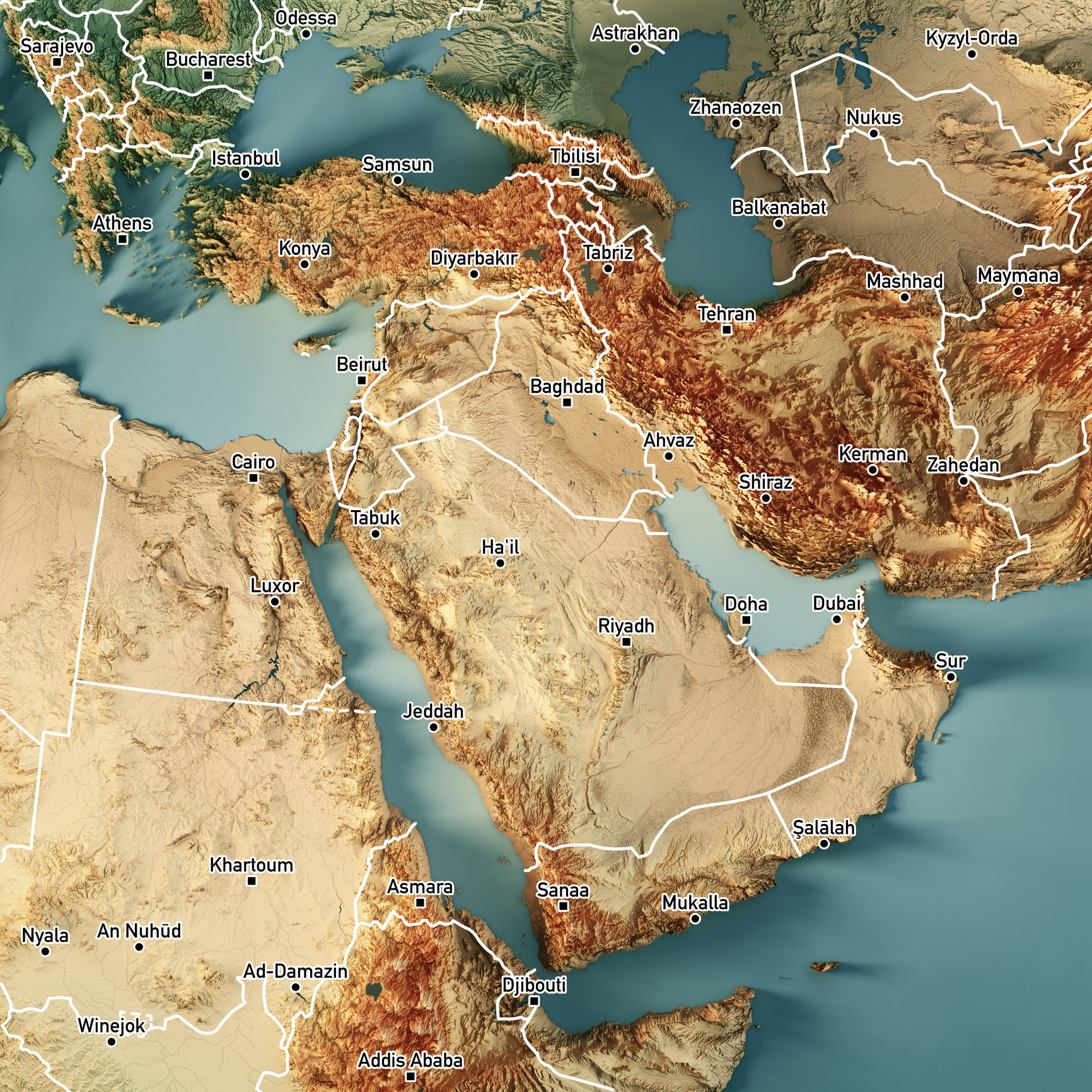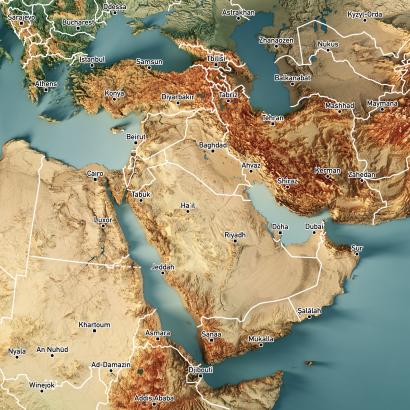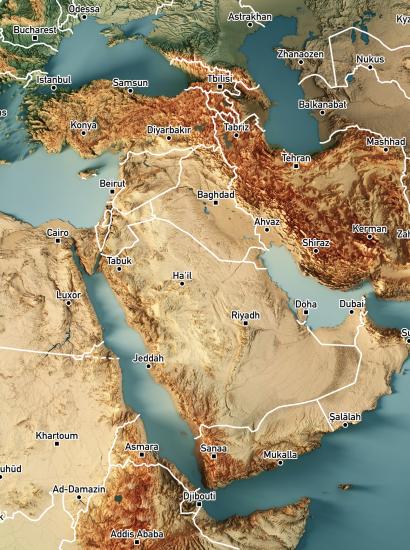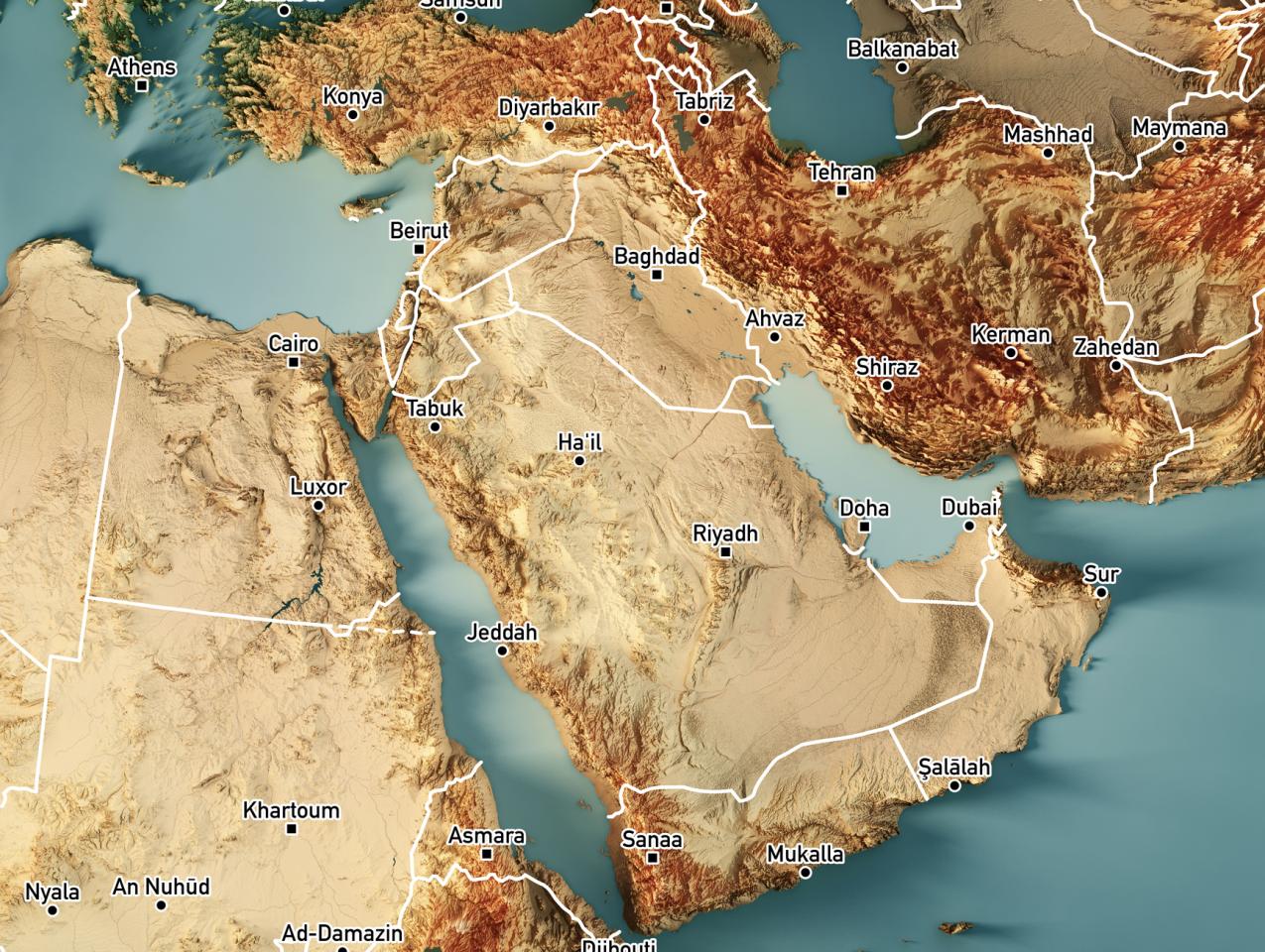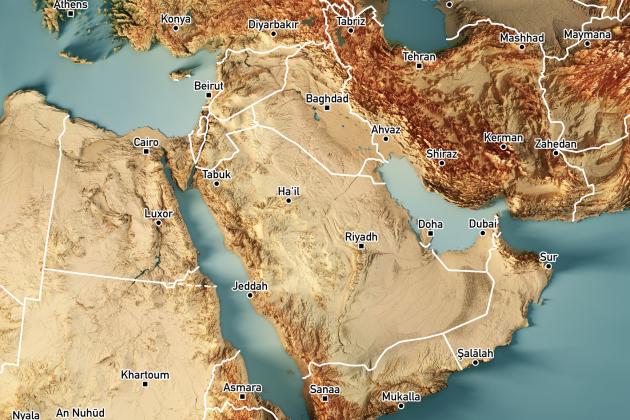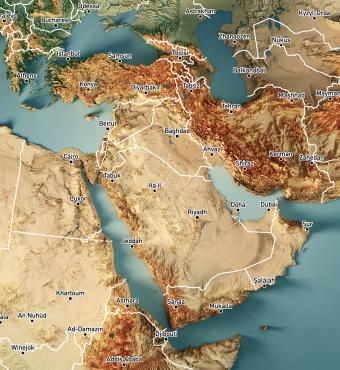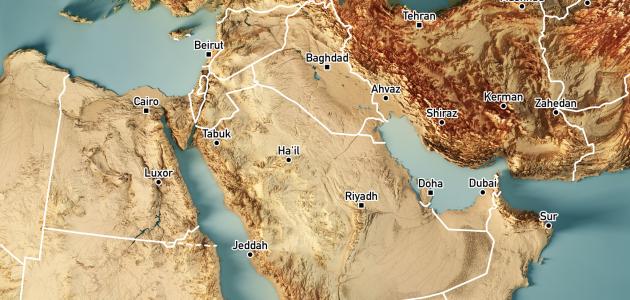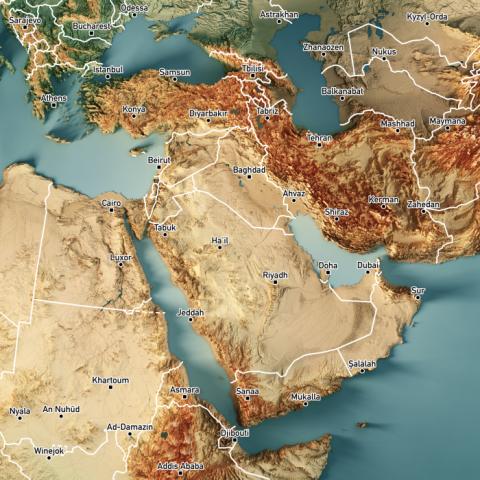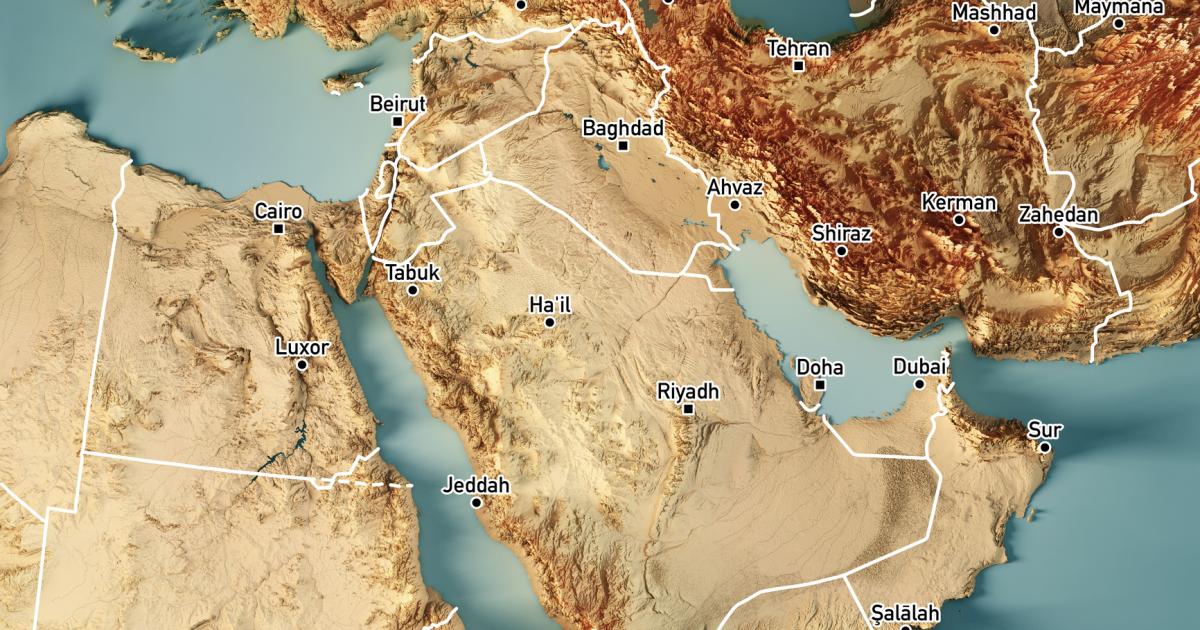- Middle East
- Revitalizing History
President Biden's upcoming "Summit of Democracies" - a virtual event scheduled for December 9 and 10 - is likely to gather most countries of the world, but at least in one version of the guest list that is circulating, there will only be two attendees from the whole of the Middle East and North Africa region: Israel, of course, long recognized as a democratic outlier among its neighbors, and Iraq, which is surely not a stable democracy but definitely light years away from Saddam Hussein's dictatorship. However, we evaluate the costs of the Iraq War and whatever we think about the pursuit of those elusive weapons of mass destruction, one accomplishment of the campaign, bringing an end to what Kanan Makiya labelled the "Republic of Fear," was an incontrovertible good.
Yet instead of dwelling on those two exceptions, Israel and Iraq, it is worth reflecting on the absence of any other democracies from the region which the administration could invite to this gathering, the signature event of the Biden vision. The summit is intended as a vehicle to rally forces of freedom against the authoritarianism and cultures of repression in Putin's Russia and Xi's China. Fair enough, a noble undertaking to be sure. Apparently however the Middle Eastern contributions will be meager indeed. What then does it then mean for the effectiveness of American foreign policy in the region, if there are so few candidates who qualify for participation in the administration's framing agenda?
Although the official list has (as of this writing) not been released, NATO ally Turkey will not be invited. That is certainly a diplomatic gaffe. President Erdogan too must face elections--one indicator of a democratic polity--but the White House nevertheless continues to treat him nearly as a persona non grata. As a candidate, Biden labeled the Turkish president an “autocrat”. He seems not to have altered that judgment. How this cold shoulder to Ankara helps advance American interests is unclear. Meanwhile Lebanon is supposed to hold elections in April, but it is also not on the guest list, nor, however, should it be, given the oligarchic character of the regime and serious doubts about whether the elections will ultimately even take place. The Syrian dictatorship, of course, will not be invited; nor will America's ally, the Jordanian monarchy, nor will Egypt, Saudi Arabia or the Gulf States. Whatever the aspiration of President Biden's democracy summit, the structure of this policy agenda filters out most of the countries in the region. Has the White House chosen the right tool for this job?
Phrased alternatively, the democracy agenda in the form currently pursued by the Biden administration is an insufficient policy to achieve effectiveness in the MENA region. It is just the wrong framework for this part of the world, given the current political cultures. As a result, the main line of action of American foreign policy just bypasses a region of considerable strategic significance, due both to its geographical location (between the Bosporus and the Suez Canal) and its oil resources, which are far from obsolete, no matter how a transition to renewable energy sources is regularly invoked. This foreign policy tack therefore also fails to address the many particular issues and conflicts around the eastern Mediterranean: our multiple equities in Turkey, a partner that will be vital if the conflict in Ukraine heats up; the goal of a political transition in Syria; the economic disaster in Lebanon; and the conflicts that Egypt faces to its east in the Sinai, to its south with Sudan and to its west in Libya. The suspension of parliamentary democracy in Tunisia belongs on this problem list as well. Meanwhile, the Biden administration policy is effectively absent without leave, across the board.
Each of those local topics deserves detailed treatment on its own. Yet if we step back for a moment to look at the forest instead of the individual trees, some significant problems in the character of American foreign policy come into focus. Polling showed how public opinion in Arab countries judged that the Obama administration had left the region worse off, primarily because of its obsessive pursuit of the agreement with Iran, at all costs. But what about US foreign policy in the region during the Trump administration, and how does the Biden foreign policy team's track record measure up against it?
The lasting legacy of the Trump administration's foreign policy in the region involves the Abraham Accords, the set of rapprochements and normalizations between Israel and several Arab states. To be sure, these agreements have still to mature and their full promise has yet to be realized, but their historic impact has been a strengthening of the network of US allies through their enhanced cooperation and integration with each other. This has been a game changer on several levels. First, what was once a regional Arab-Israeli conflict has been localized to an Israeli-Palestinian problem and generally moved to the back burner. Second, the network of participating states has the potential to become a cohesive bloc, held together by shared opposition to Iranian ambitions, to which it will act as a counter-force. Third, this reorganization of international relations in the region will provide a cushion to soften the impact of the future repositioning of U.S. assets out of the Middle East due to the strategic pivot to Asia and the Indo-Pacific. In other words, the success of American repositioning, in order to face China depends on the establishment of effective cooperation among American allies in MENA. Trump-era diplomacy lay the foundation for this transformational agenda.
So far, the Accords have involved the Gulf States, Sudan and Morocco. It is reasonable however to expect Saudi Arabia to participate eventually, perhaps sooner than later. There have already been tentative indications that Riyadh will open up to cooperation with Israel. Interesting steps have taken place in the classic public diplomacy arena of athletic competitions. Saudi and Israeli participants have faced each other in the same matches, and soon Israeli teams will travel to the Kingdom to take part in high profile events. That will mean displays of Israeli flags and, if the Israeli team wins, the Israeli anthem in the Saudi capital. This symbolism was unthinkable only a few years ago, but it may soon transpire thanks to the previous administration's policies, as well as the reform process underway in Saudi Arabia.
Thankfully, the Biden team has not repudiated those policies, even if it has hardly given them full-throated support. The only half-hearted embrace of the Abraham Accords should not surprise anyone, however. There is a taboo in today's Washington on appearing to endorse any achievements of the Trump administration. Yet the real problem in Biden-era US Middle East policy goes beyond that partisan pettiness. What one sees instead is policy aimlessly adrift, a rudderlessness, combining indolence and confusion, with the US sitting out major conflict areas--like Syria--while continuing to obsess over returning to an Iran Deal that no one, including the Iranians, believes can amount to much anymore.
This absence of an effective policy is particularly acute in Lebanon. Our capable Ambassador there can only have a limited impact as long as the foreign-policy leadership in Washington refrains from robust strategic thinking. Is anyone minding the store back home? Without serious attention from administration leadership, opportunities to pursue U.S. interests and to stabilize the region are being lost. The problem is compounded by a predisposition to trivialize Lebanon as just a small country with intractable problems, while in fact it is in Lebanon that the pushback against Iran could succeed, with broader regional consequences. It is not a marginal theater that one might ignore; it could instead be the beachhead for change.
In the public discussion, most attention has focused on the Lebanese economic crisis, which is understood as implying the need for international financial transfusions. Yet. without deep political reforms and full transparency in budgeting, additional aid will only disappear into the streams of corruption, feeding an avaricious elite that holds the country in its grips. Instead of throwing limitless money at the problem, a thoughtful and forward-leaning U.S. policy could achieve much through a combination of steps on its own and in concert with the European Union and other international actors.
First, that stranglehold on political and economic power has to be broken, especially through a robust application of sanctions. The U.S. has the tool in the Global Magnitsky Act to go after corrupt practices. Initial steps have already been taken in this direction, but this sanctioning can go much further. It has to target all those parties siphoning off the country's remaining reserves, just as it should also go after the enablers of the smuggling operations to Syria. Assad has called Lebanon "the lung of Syria," because it can breathe in illicit resources. Pressuring Assad toward a political transition begins with anti-corruption measures in Lebanon.
Second, especially in light of the upcoming democracy summit, the Biden administration should publicly commit to safeguarding the Lebanese elections scheduled for the spring. The oligarchy may try to call them off, if it looks like they will lose. Washington has to make clear that such a move would be unacceptable and have severe consequences. Instead the U.S. should guarantee genuinely effective international election observers. There is a growing opposition from within Lebanese civil society that is mobilizing for the vote; its minimal goal involves gaining enough parliamentary seats in the election to deny the ruling cartel the two thirds majority that it currently commands and that gives it effectively unlimited power. Washington should encourage the Saudis to support promising candidates. As a further part of the support for Lebanese democracy, Washington and the international community should demand that the investigation of the Beirut port explosion - an inquiry that certainly will implicate Hezbollah-- continue without interference. The powers that be are doing their best to sandbag it.
Third, Lebanon is the site where the rollback of Iran can begin. The Lebanese themselves have no illusions that Hezbollah is anything other than a proxy for Iran. That is why they denounce Hezbollah's power as an "occupation," using the term الاحتلال, the same pejorative that Palestinian activists use for Israel. Especially in the Shia community there is growing bitterness that Hezbollah has been sending young Lebanese soldiers to die in Syria, Iraq and Yemen in order to contribute to Iran's efforts to destabilize the region. Whatever legitimacy Hezbollah may have once claimed as the defender of Lebanon against Israel has been squandered, as it morphed into a source of cannon fodder for Tehran's adventurism.
Instead of trying to woo Tehran back into a nuclear deal by going soft on its puppets, Washington should insist on the disarming of Hezbollah--in accordance with the Taif agreement of 1989 that ended the Lebanese civil war. Indeed, Washington should go further and advocate a normalization of relations between Lebanon and Israel, in effect, an extension of the Abraham Accords. That reconciliation would of course mean the definitive collapse of Hezbollah and its bitter-ender ideology, but the Biden administration is evidently too timid or too committed to obsolete paradigms from the Obama era to pursue this kind of victory. The mirage of a return to the Iran deal prevents it from trying to win the competition with the Islamic Republic.
But that is precisely the kind of victory that could also lead to a genuinely democratic Lebanon with ripple effects in Damascus and all the way to Tehran. The Biden administration claims to be preparing a celebration of democracy at the upcoming summit. Too bad it has such low expectations for the Middle East.







